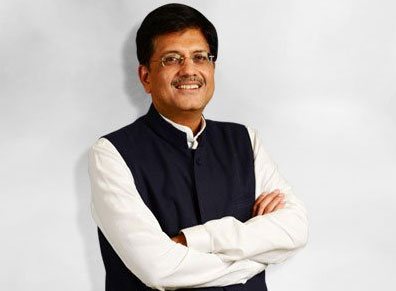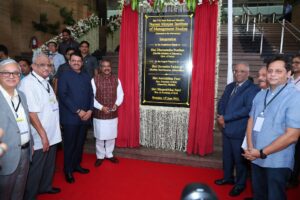
The Special Economic Zones (Amendment) Bill 2019 – which was passed by the Parliament last week allowing “trusts or any entity” to set up units in the Special Economic Zone (SEZ) – is aims to boost investment and generate employment in a wide range of economic activities, including in the infrastructure sector.
The SEZ (Amendment) Bill 2019 replaced an ordinance of March 2019, which amended the SEZ Act of 2005 to add two new categories – “trusts or any entity, as may be notified by the Central Government” – among those eligible for setting up units in the notified SEZs.
This was done by amending the definition of a “person” recognised in the original law “as an entrepreneur eligible to be given permission to set up a unit in Special Economic Zone”.
So far, a “person” meant an individual, whether resident in India or outside India, a Hindu undivided family, co-operative society, a company, whether incorporated in India or outside India, a firm, proprietary concern, or an association of persons or body of individuals, whether incorporated or not, local authority and any agency, office or branch owned or controlled by such individual, Hindu undivided family, co-operative, association, body, authority or company.
As the language of the Bill makes it clear, while trusts become eligible instantly to operate from the SEZs, others (“any entity) can be added to the list through government notifications as and when needed without having to amend the law again.
As the Commerce and Industry Minister Piyush Goyal told the Rajya Sabha while piloting the Bill last week, the government had already received eight applications from trusts from reputed companies proposing a total investment potential of Rs 8,000 crore.
The natures of these trusts or the kind of economic activities they are involved in are not clear yet.
Though the opposition was sceptical about the usefulness of the amendment, Goyal told the House that the SEZs had generated 20 lakh jobs, brought investments worth Rs 5 lakh crore, with exports worth Rs 7 lakh crore by the end of March 2019.
According to Jagdeep Gautam, a Delhi-based chartered accountant specialising in trusts, the Bill opens up the possibility for all types of trusts to operate from the SEZs – public charitable trusts, private trusts run by big and small corporate houses, business trusts like real estate investment trusts (REITs) and infrastructure investment trusts (InvITs), private companies with their own PF trusts and port trusts run by the government.
These trusts run a wide range of activities ranging from health, education, skilling and other livelihood generation activities to manufacturing and financing.
Vishnu Jain, an advocate-on-record in Supreme Court specialising in SEZs, gives an example to illustrate how the amendment would boost export. He says, Baba Ramdev’s Patanjali Yogpeeth for example, a trust which operates from Haridwar, can now operate from the Vishakhapatnam SEZ and export its products like ayurvedic medicines, cosmetics and food products with ease by using the port facility nearby.
The case of business trusts, operating in India from 2014, is particularly interesting from the point of view of potential beneficiaries.
A business trust is defined under the Income Tax Act (through an amendment in 2014) as “a trust registered as an Infrastructure Investment Trust (InvIT) or a Real Estate Investment Trust (REIT), the units of which are required to be listed on a recognised stock exchange, in accordance with the regulations made under the Securities and Exchange Board of India Act, 1992 (15 of 1992) and notified by the Central Government in this behalf”.
These trusts (REITs and InvITs) are like mutual funds, raising resources from investors to directly invest in realty or infrastructure projects. These trusts are conceived as an answer to India’s need for mobilising finances from the private sector to meet the needs of infrastructure development. These are as yet in a nascent stage in India.
Gautam says, the business trusts were allowed to operate in SEZs by the Securities and Exchange Board of India (SEBI) in 2016. The present amendment in the SEZ Act 2005 smoothens the process further.
He added that the business trusts may be a major beneficiary could also be inferred from the Statement of Objects and Reasons of the Bill which says the amendment became necessary “as the trusts and entities are a very common form of operating bodies in the financial sector”.



